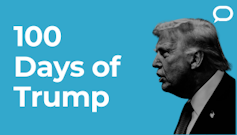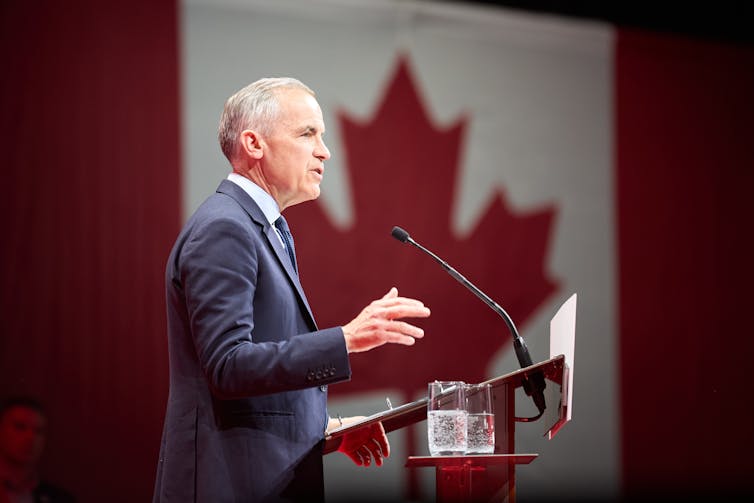As in life, trust matters in international politics. Vital for cooperation and reciprocation, trusting someone nevertheless leaves one vulnerable should they break faith and pursue self-serving goals. As US political scientist Andrew Kydd recognised, trust is the belief that someone “prefers mutual cooperation to exploiting and suckering others”.
Two versions of trust matter in international relations. Strategic trust, in the form of institutionalised agreements and organisations which provide certainty – as well as material incentives – to encourage people and nations to honour their commitments. And moralistic trust, based on what social scientists call an “implicit theory of personality” that involves people making everyday judgements regarding a person’s character and integrity.
A brief look at the liberal post-war economic order shows how trust has proved fundamental. The Bretton Woods system of multilateral institutions that developed after the second world war, including the International Monetary Fund, World Bank and World Trade Organization, created a rules-based consistency for mutual benefit.
The WTO, for example, promised members that economic conditions between countries would not opportunistically and suddenly change. If they did, independent recourse was available through its appellate body.
This certainty encouraged many otherwise hesitant states to engage. The collapse of the appellate body in 2019 – after the US, under then-president, Donald Trump, blocked further appointees, thus denying it the required quorum – was a critical first step towards the present crisis in trust.

How is Donald Trump’s presidency shaping up after 100 days? Here’s what the experts think. If you like what you see, sign up to receive our weekly World Affairs Briefing newsletter.
Across the opening 100 days of his second term, Trump has broken both these conceptions of trust. In doing so, he has devastated – perhaps irreparably – economic confidence in the US.
In terms of strategic trust, look no further than Trump’s attacks on Canada and Mexico. On February 1, Trump threatened near-universal 25% tariffs on exports from America’s two largest trading partners. These tariffs entered into effect on March 4 and were followed by additional duties on aluminum, steel and auto parts.
Viewed from Canada and Mexico, Trump’s actions were an unambiguous breach of trust and the US-Mexico-Canada agreement, which Trump had personally signed in 2020. Canada’s prime minister, Mark Carney, reacted by forewarning that “its clear the US is no longer a reliable partner” and predicted a “fundamentally different relationship” between the two countries going forwards.
When it comes to moralistic trust, Trump was on weak ground before even becoming president. Beyond his business dealings – which have historically involved unpaid vendors and fraudulent practices – as well as serious allegations of abuse, Trump’s first term was marked by numerous reputational failings. These included a historic two impeachments, the second for his role in the January 6 insurrection that attempted to unlawfully overturn the 2020 election result.
“Liberation Day” on April 2, which was when Trump announced the details of his tariffs, delivered a singular blow. The heavy targeting of poorer countries such as Cambodia and Lesotho – while exempting Russia – strengthened reservations about Trump’s character. Equally, the blatant idiocy of many tariffs – most prominently the Heard and McDonald Islands, which are uninhabited save for penguins – further limited confidence in his administration’s competency and judgement.
Combined with Trump’s imperialistic bullying of other nations, from Greenland, to Panama to Ukraine, his remaining integrity in economic affairs has imploded. Although the full effects (and damage) of Trump’s actions on America’s reputation are not yet known, adverse consequences should be expected in both the short and longer terms.
The long and the short
In the short term, decreased economic trust will prolong market volatility. April 3-4 saw the largest-ever two-day loss, as US$6.6 trillion (£5 trillion) was erased from US stocks. Trump’s tariffs are also expected to depress growth, both at home and abroad.
JP Morgan now rates the likelihood of a recession this year at 60% – more than double when Trump took office. Consumer confidence, meanwhile, is at its second lowest since records began.

EPA-EFE/Eric Reid
Increased prices for groceries – two-thirds of US vegetable imports come from Mexico – as well as energy bills – the US imports 61% of its oil from Canada – is also likely. Higher tariffs on goods from China will similarly impact domestic spending.
In the longer-term, diminished economic trust will continue to weaken bond markets, hampering America’s ability to service its colossal national debt. The increased cost of dollar-denominated goods could also spark a debt crisis reminiscent of the 1980s, when Latin America defaulted en masse, causing widespread economic turmoil.
Perhaps most significantly, declining global trust will accelerate processes of de-dollarisation and reduce reliance on the dollar as a reserve currency. The ending of the “exorbitant privilege” – the advantage enjoyed by the US thanks to the dollar being the global reserve currency – could spell disaster vis-à-vis borrowing costs and, ultimately, risk a balance of payments crisis. More broadly, de-dollarisation would leave the US economically marginalised in a more multipolar global economy.
Extending beyond economics, however, Trump’s trade policy will eviscerate American soft power unless corrected. With trust in the US dwindling, an increase in coercive forms of bargaining with international trade partners over more cooperative approaches becomes inevitable. Despite the demonstrable superiority of the latter approach, mutual trust is required to facilitate successful collaboration.
Without trust, negotiation itself becomes an impossibility. And if trust is consistently broken, even those predisposed towards cooperation will be deterred.
The US under Trump is fast becoming untrustworthy. American reliability must now be broadly questioned, from collective security to the rule of law. The effect of this widespread loss of trust – embodied by Trump’s indiscriminate and ill-mannered economic attacks – will be the neutering of US soft power.
The foundation of American strength for decades, its ability to attract and appeal to its allies as an alternative to coercion, is now on life support. Meanwhile, China – purportedly “the greatest threat to America today” – is actively exploiting this decline and accelerating its own soft power initiatives.
If Trump truly wishes to make America great again, then betraying allies through coercive mistreatment is not the answer. Honest engagement that builds trust is.




